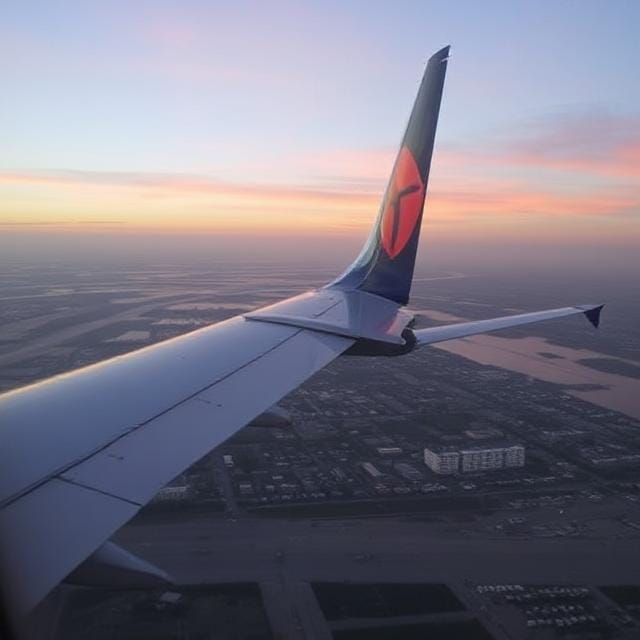Jacksonville International Airport (JAX) has long been a gateway for both business and leisure travelers, thanks to its growing population, booming tourism industry, and prime location on the East Coast. However, a troubling trend has emerged in recent months—Jacksonville flight discontinuations are on the rise, with several airlines pulling out key routes.

For travelers, this raises many questions: Why are these flights being canceled? Is this just a short-term adjustment, or does it signal a long-term reduction in air service? And most importantly, how will these cuts affect connectivity, affordability, and local businesses in the Jacksonville area?
This article explores the airlines scaling back service, the factors driving these decisions, and the impact of Jacksonville flight discontinuations on the community and its economy.
Airlines and Routes Affected by Jacksonville Flight Discontinuations
Over the past year, major carriers and budget airlines alike have scaled back routes at JAX. Airlines like American Airlines, Delta, JetBlue, Allegiant, and Frontier have all reduced or completely withdrawn flights.
Some of the most significant Jacksonville flight discontinuations include:
- JetBlue halting service to New York-LaGuardia and Fort Lauderdale
- American Airlines cutting nonstop flights to Chicago and Philadelphia
- Frontier Airlines discontinuing service to Las Vegas and Denver
- Allegiant reducing seasonal flights to smaller Midwest cities
These changes have affected both business and leisure travelers, as well as families who relied on nonstop connections. Many of these cuts were quietly implemented, often described vaguely as “network adjustments” or “seasonal changes,” leaving travelers scrambling for alternatives.
Why Are Jacksonville Flight Discontinuations Happening?
Airlines don’t cut routes without reason. Several industry-wide challenges have combined to put Jacksonville on the losing end of resource allocation.
1. Pilot Shortages
The U.S. aviation industry is still grappling with a pilot shortage. Retirements and slow training pipelines have left airlines struggling to staff flights. As a result, resources are concentrated on major hubs, while secondary markets like Jacksonville often lose out.
2. Aircraft and Maintenance Issues
Supply chain disruptions have delayed new aircraft deliveries and created maintenance backlogs. With fewer planes available, airlines are forced to prioritize high-demand, profitable routes over lower-margin ones such as those out of JAX.
3. Rising Operational Costs
Fuel prices, airport fees, and inflation are pushing up operating costs. Routes with thinner profit margins—like many Jacksonville flight discontinuations—are often the first to be eliminated.
Market Challenges Facing Jacksonville International Airport
Business vs. Leisure Imbalance
Airlines seek markets that balance business and leisure travel. Jacksonville offers strong leisure appeal with beaches, golf, and resorts, but lacks the consistent corporate traffic seen in cities like Atlanta or Dallas. This seasonal demand makes it harder to sustain year-round flights.
Proximity to Other Airports
Jacksonville’s location near major airports like Orlando (MCO), Daytona Beach (DAB), and Savannah (SAV) creates competition. Many travelers are willing to drive a couple of hours for cheaper fares or more flight options, making it harder for JAX to compete.
The Impact of Jacksonville Flight Discontinuations
The ripple effects of these cancellations extend beyond inconvenience for travelers.
- Longer Travel Times – Direct flights are disappearing, forcing travelers to connect through hubs like Atlanta or Charlotte, adding hours and risk of delays.
- Higher Ticket Prices – With fewer carriers and less competition, fares are rising on remaining routes.
- Business and Tourism Challenges – Local companies face reduced accessibility, conventions may bypass the city, and tourism could slow due to fewer direct options.
How Jacksonville International Airport Is Responding
JAX leaders are actively working to reverse the trend of Jacksonville flight discontinuations.
- Airline Incentive Programs – Offering fee waivers, marketing support, and risk-sharing agreements to attract airlines back.
- Infrastructure Investments – Modernizing terminals and upgrading runways to improve efficiency and passenger experience.
- Community Partnerships – Collaborating with local businesses to demonstrate strong demand and encourage airlines to restore routes.
The Bigger Picture: A Nationwide Issue
Jacksonville isn’t alone—many mid-sized airports across the U.S. have seen flight cuts. Post-pandemic travel patterns, reduced corporate travel, and a renewed focus on hub-and-spoke networks have reshaped airline strategies.
Cities like Toledo and Dubuque have suffered even more dramatic reductions, showing that Jacksonville flight discontinuations are part of a broader industry recalibration.
What Travelers Can Do
While travelers can’t stop airlines from cutting routes, there are steps to make flying easier:
- Stay flexible with travel dates and times.
- Set up fare alerts for deals.
- Support JAX whenever possible—using local flights helps prove demand.
- Provide feedback to airlines requesting reinstated routes.
Final Thoughts: The Future of Jacksonville Flight Discontinuations
Although Jacksonville flight discontinuations are frustrating for both residents and businesses, the situation may not be permanent. As the aviation industry stabilizes, routes may return—or be replaced with smarter, more efficient connections.
With Jacksonville’s growing population, strong tourism sector, and proactive airport leadership, the city remains well-positioned to regain air service in the coming years. For now, travelers will need patience—but there’s reason to believe the skies over JAX will once again see a surge of direct flights.








